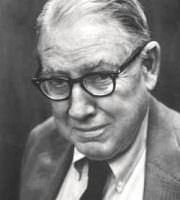by Paul Hartal
The bamboo leaves swished in the wind
As Lieutenant Ryouta Takahashi said goodbye
To his wife and son.
He made his way to the port
With measured steps,
His mind thick with heavy thoughts.
On route
To reinforce the Japanese garrison in Shanghai
The convoy set sail
From the Sasebo Naval Arsenal
In Nagasaki Prefecture.
It was part of the 3rd expeditionary fleet
Of the Imperial Japanese Navy
Consisting of a dozen cruisers and gunboats.
Their mission was to patrol the coasts
And river ways of China and to give support
to the landing operations of Japanese troops.
The boats ploughed through choppy waters
In the South China Sea for two days
And three nights.
Upon casting anchor in the Yangtze delta,
Lieutenant Ryouta Takahashi reported himself
To the staff of his commanding officer,
Major Daiki Chinen.
Judging by his name,
Takahashi-san told himself,
The major ought to be from Okinawa.
The lieutenant spent
A few relatively calm weeks
In Jiangsu Province.
But then, on August 13, 1937,
The Battle of Shanghai began.
The exchange of fire
Escalated into a full-scale war
Between Japan and China.
Imperial Japanese Army units,
Supported by aircrafts and tanks,
Crossed over the Bazi Bridge in Shanghai.
Hirohito’s Third Fleet
Stationed in the Yangtze
And the Huangpu River joined the battle.
They bombarded the Chinese positions
In Shanghai.
It became one of the fiercest battles
Of the war. After three months of fighting,
In the end of October, the Chinese forces
Led by the Nationalist General Chiang Kai-shek
Started to retreat from Shanghai to Nanjing
Engaging the Japanese in combat
Along the road.
Advancing with his platoon,
Takahashi was shocked to see
Piles of corpses of Chinese men, women,
And children lying on the roadsides.
Once, in a stockade yard,
He saw Japanese soldiers
Dashing forward and shouting ‘charge’
In bayonet practice on Chinese civilians.
At another time he saw a sergeant
Amusing himself in tossing grenades
At captured prisoners.
Grinning widely, the sergeant removed
The safety pin of the hand grenade,
Holding in place the lever in a death grip
And then threw the bomb
At the frightened and helpless victims.
It took seven seconds for a grenade
To explode, leaving in its wake
Bleeding men with shredded bodies
And limbless torsos.
And Takahashi also witnessed
Other atrocities. He saw
Imperial Army soldiers
Raping and killing women,
Murdering men and children
And then looting their houses.
In the autumn of 1937,
In the days before Nanjing’s fall,
The invading Japanese troops massacred
About 150,000 Chinese prisoners
Along the Yangtze River.
The commanding officer of the region
Was initially General Iwane Matsui
But he became ill and
Prince Yasuhiko Asaka,
Uncle of Emperor Hirohito replaced him.
The Prince issued a secret order
To kill all captives.
Despite being surrounded
By the horrors of war,
On a rare occasion,
Takahashi-san managed to sit down
With Captain Naoki Hakudo for drinking
A few cups of saké.
They both liked it herb-flavored.
From small choko cups
They gulped with joy the aromatic rice brew
And their spirit rose fast to an elevated level.
And so, it did not take long
Before the beverage
Loosened their tongues.
“You know, Captain”, said Takahashi-san,
“The height of the sky rivals the depth
Of our shame.”
“And why is that?” asked Hakudo-san.
“As you know our history and culture
Are rich but we are indebted forever
To China for her gifts to us,
For her contributions to our identity,
For shaping our way of life;
Our customs and outlook on the world.
“Mind you, culturally, Japan absorbed
The Confucian virtues of loyalty,
Trust, righteousness, politeness
And wisdom. And now look
What happens here.
How can we do this to China?”
Hakudo-san gave an inquisitive look
To his comrade.
“Well, lieutenant”, he said,
“Your duty is to be loyal
To your country and your honor
Is to die for the Emperor.
Nothing less and nothing more.”
The Sino-Japanese War went on
And expanded into World War II.
Eight years after the Battle of Shanghai
On August 6, 1945,
The American “Enola Gay” B-29 bomber
Dropped an uranium atomic bomb
On Hiroshima.
Three days later another B-29,
The “Bockscar”, raided Nagasaki
And destroyed it with a plutonium bomb.
Soon after the nuclear attacks
Emperor Hirohito
Reluctantly announced the capitulation
Of the Empire of the Rising Sun.
On September 2, 1945,
A formal surrender ceremony
Was held in Tokyo Bay
Aboard the battleship USS Missouri.
The Second World War was over.
Takahashi-san survived the war.
However, it took many months
Until he was able to return
To his homeland and to reunite
With his family.
He could hardly recognize his son.
He also found that his wife
Was very different.
Takahashi-san settled down
To civilian life
As a mechanical engineer.
A few weeks after his return
He was sipping green tea
In the rock garden.
It was a peaceful morning
And a glorious sun was rising
Over the snow-capped summit
Of Mount Fiji.
For a while
He looked at the magnificent scene
And then turning to his wife, he said:
“You know, Shiori,
My comrades and I always believed
In the unimpeachable supremacy
Of the Emperor.
We served him with honor.
And we remained loyal
To our country till the very end.
Yet we betrayed humanity.”





